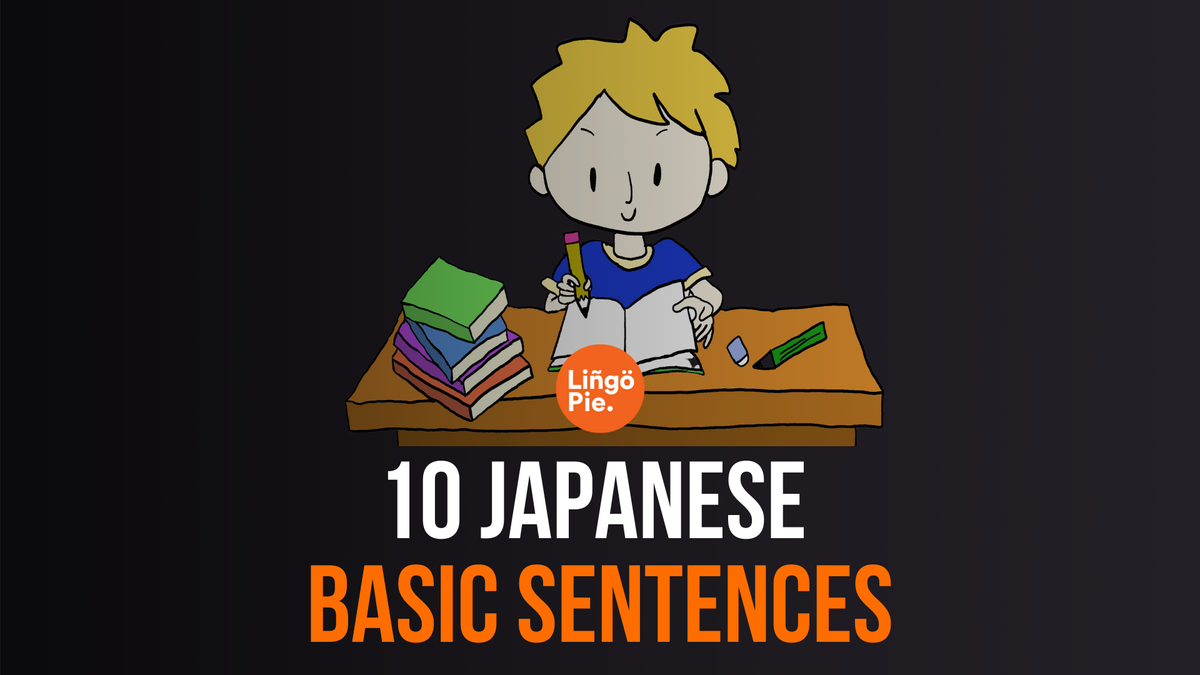Japanese words can sound polite and formal in textbooks, but real conversations are a whole different story. If you’ve ever watched a Japanese show or listened to native speakers, you’ve probably noticed slang flying around that never shows up in your lessons. These casual expressions are the heart of everyday Japanese, and knowing them can instantly make your language sound more natural.
In this guide, we’re diving into 22+ Japanese slang words that people actually use. This roundup will also include all the playful insults and chill phrases that pop up in texts, anime, and real-life chats. Whether you’re learning for fun, for travel, or to level up your fluency, these are the words that help you speak like a local.
- 50+ Common Japanese Phrases For Tourists
- 12+ Japanese Curse Words And Swear Words
- How to use ChatGPT to Study Japanese (with Prompts)

Why Learn Japanese Slang?
Learning Japanese slang helps you understand how people actually speak in real life. Textbooks often teach polite or formal language, but that’s only one side of how Japanese works. If you want to follow conversations in anime, YouTube videos, dramas, or even casual chats with friends, you’ll need to know common slang.
Slang also gives your Japanese a more natural and native sound. It shows you’re not just memorizing grammar—you’re tuned in to how the language feels. Plus, it helps you avoid sounding too stiff or robotic in casual situations.
Whether you're texting a friend, reacting to something funny online, or just trying to keep up with a fast-paced show, Japanese slang makes your communication more real and more fun.
Commonly Used Japanese Slang Words and Phrases
Chotto matte (ちょっと待って) - Wait a moment
This phrase is commonly used to ask someone to wait for a short period of time. It's casual and can be used in various situations, such as when someone needs to finish a task before attending to another matter, or when someone is about to share something but needs a moment to gather their thoughts.
Maji de? (マジで?) - Really?
This expression is used to express surprise or disbelief. It's often used in response to something unexpected or shocking. It can also be used to seek confirmation or clarification about something that seems too good to be true.
Yabai (やばい) - Amazing, Terrible
This versatile word can have two opposite meanings depending on the context. It can be used to describe something impressive, cool, or exciting (e.g., "That concert was yabai!"), or it can express alarm, danger, or a sense of being overwhelmed (e.g., "I forgot my homework again, yabai!").
Uzai (うざい) - Annoying
This slang term is used to describe something or someone that is bothersome, irritating, or frustrating. It's commonly used among young people to express annoyance or exasperation with a situation or person.
Sonna koto nai (そんなことない) - That's not true
This phrase is used to dismiss or refute a statement that someone finds hard to believe or disagrees with. It's often used casually in conversation to express skepticism or to reassure someone that their concerns are unfounded.

Japanese Slang Idioms That Sound Completely Weird
Some Japanese slang works like idioms. The words mean one thing, but the phrase means something totally different. Master these and you'll sound like you actually get Japanese humor and culture.
沼にハマる (Numa ni hamaru) – To get completely obsessed with something
Literal meaning: “Fall into a swamp”
Real meaning: To get so into a hobby, fandom, or interest that it takes over your life.
You’ll hear this in otaku or fan communities. When someone says アイドル沼にハマった (I fell into the idol swamp), they’re saying they got hooked on an idol group—buying merch, watching every clip, and basically living for it. It’s used in a light, self-aware way, often online or among friends.
Common with: Anime fans, gamers, idol stans, anyone deep in a niche
Example:
アニメ沼にハマって毎日寝不足。
Anime numa ni hamatte mainichi nebuso.
“I’m so deep in anime obsession I’m sleep-deprived every day.”
爆死 (Bakushi) – To fail hard or flop
Literal meaning: “Explosive death”
Real meaning: Something failed spectacularly—like a test, a joke, or a creative project.
Used online, especially among young people or creatives. It can describe real-life failures or sarcastically refer to minor flops. It has a slightly comedic tone, like laughing at your own disaster.
Common with: Students, gamers, creators
Example:
テスト爆死した。やばい。
Tesuto bakushi shita. Yabai.
“I totally bombed the test. I’m doomed.”
詰んだ (Tsunda) – I’m screwed / It’s over
Literal meaning: “Checkmate” (from chess or shogi)
Real meaning: You’re in a situation with no way out or solution.
Used by all age groups, especially online or in texting. It can be serious or used in a funny, overdramatic way. Think: “welp, that’s it for me.”
Common with: Everyone, especially younger people
Example:
財布忘れた。詰んだ。
Saifu wasureta. Tsunda.
“I forgot my wallet. I’m screwed.”
フラグ立てる (Furagu tateru) – Jinx it / Set yourself up
Literal meaning: “Raise a flag”
Real meaning: Say or do something that practically guarantees a negative outcome—like jinxing yourself.
Borrowed from video games and anime, where raising a “death flag” means something bad is coming. Used humorously when people tempt fate.
Common with: Anime/gaming fans, but widely recognized
Example:
「この試験簡単そう!」って言ったらフラグ立てたわ。
“Kono shiken kantan-sō!” tte ittara furagu tateta wa.
“I said the test looked easy—definitely jinxed myself.”
塩対応 (Shio taiou) – Cold or uninterested attitude
Literal meaning: “Salt response”
Real meaning: Someone treats you with minimal effort, often passive-aggressively.
Often used for idols or staff members who don’t interact enthusiastically with fans. It’s the opposite of 神対応 (kami taiou), which means godlike kindness.
Common with: Idol fans, customer service reviews, social media
Example:
握手会で推しが塩対応だった...泣いた。
Akushukai de oshi ga shio taiou datta…naita.
“My fave was cold to me at the handshake event… I cried.”
病む (Yamu) – Mentally spiral or become emotionally unstable
Literal meaning: “Get sick”
Real meaning: To mentally or emotionally spiral, often from stress, obsession, or heartbreak.
It’s a darker, more intense slang term—used when someone’s “not okay” but still functioning. Common in fandoms or when joking about burnout or emotional overload.
Common with: Young people, online venting
Example:
推しに彼女バレて病んだ。
Oshi ni kanojo barete yanda.
“My fave was revealed to have a girlfriend and I totally spiraled.”
空気読めない (Kuuki yomenai / KY) – Can’t read the room
Literal meaning: “Can’t read the air”
Real meaning: Someone who doesn’t pick up on social cues or says the wrong thing.
Used in both casual and serious contexts. Calling someone “KY” can be playful or critical, depending on tone.
Common with: Everyone, especially in school or work settings
Example:
あの人、会議中に冗談言ってKYすぎ。
Ano hito, kaigichuu ni joudan itte KY sugi.
“That person cracked a joke in the middle of the meeting—totally couldn’t read the room.”

Workplace Slang In Japanese
Otsukaresama desu (お疲れ様です) - Thank you for your hard work
This phrase is commonly used in Japanese workplaces as a polite way to acknowledge and appreciate someone's effort and hard work. It's often said at the end of the workday or after completing a task to express gratitude and mutual respect among colleagues.
Nomikai (飲み会) - Drinking party after work
In Japanese corporate culture, socializing outside of work is common and often encouraged as a way to build camaraderie and strengthen team bonds. "Nomikai" refers to a drinking party organized by colleagues after work hours. It's a relaxed and informal setting where coworkers can unwind, socialize, and build relationships in a more casual environment.
Kanban musume (看板娘) - Poster girl
This term is used to refer to an attractive woman who is often used as a promotional model or spokesperson for a company or product. It's derived from the idea of a woman being as eye-catching as a poster (kanban) and is sometimes used humorously or colloquially in workplace conversations.
Shacho (社長) - Company president
In Japanese business culture, titles and honorifics are often used to show respect and hierarchical structure within an organization. "Shacho" is a shortened form of "shachō" (社長), which means company president or CEO. It's commonly used to refer to the highest-ranking executive in a company or organization.
Kaisha (会社) - Company, Workplace
This term simply refers to a company or workplace in Japanese. It's used in various contexts, such as discussing employment, referring to the organization where someone works, or talking about business matters. In casual conversation, "kaisha" can also be used to refer to the concept of work or the working world in general.
Regional Slang In Japanese
Dochira kaimashita ka? (どちら買いましたか?) - Where did you buy that?
This phrase is commonly used in casual conversation to inquire about the place where someone purchased an item. It's a polite way to express interest in a product or to seek recommendations for shopping locations.
Nandemo nai (なんでもない) - It's nothing
This expression is used to downplay a situation or to reassure someone that their actions or words did not cause any inconvenience or trouble. It's often said in response to expressions of gratitude or apologies to indicate that the matter is of little significance.
Yoroshiku onegaishimasu (よろしくお願いします) - Nice to meet you, Please take care of me
This phrase is a versatile expression used in various contexts, including when meeting someone for the first time, when requesting assistance or cooperation from others, or when expressing gratitude in advance for future favors or cooperation.
Nanka (なんか) - Something, Kind of
This word is used as a filler or hedge in conversation to express vagueness or uncertainty about a statement or description. It can also be used to soften the tone of a statement or to indicate that the speaker is unsure or hesitant about their words.
Nandaka (なんだか) - Somehow, In some way
Similar to "nanka," this expression is used to convey vagueness or uncertainty about a situation or feeling. It can also be used to express a sense of ambiguity or indistinctness about something that is difficult to articulate clearly.

Japanese Internet Slang
If you spend time on Japanese Twitter, YouTube, or forums like 2channel or NicoNico, you’ll notice that online Japanese has a slang style all its own. It’s fast, creative, and often completely different from anything taught in textbooks. Here are some of the most common internet slang terms that you’ll see flying across comment sections, tweets, and chat boxes.
草 (kusa)
This literally means “grass,” but online it means “lol.” The origin comes from people writing “wwww” (the Japanese version of “haha,” short for warau), which visually looks like blades of grass. When something is hilarious, you’ll often just see people comment with one big word: 草.
笑 (wara) / w / www
Before “kusa,” people used the kanji for laugh (笑) or the letter “w” (short for warau) to show laughter. One “w” is a soft chuckle. A flood of “wwwwww” means someone found it hilarious. It’s basically Japan’s version of “LOL” or “LMAO.”
8888
A numeric way to show applause. Read as pachi pachi pachi (the sound of clapping), “8888” is typed to congratulate or celebrate something cool, usually in live comment sections like NicoNico or YouTube.
KWSK
Short for kuwashiku, meaning “give me the details.” It’s often dropped in as a one-word comment when someone wants to hear the full story.
WKTK
A compressed form of wakuwaku tekateka, which describes nervous or shiny excitement. It’s a playful way of saying “I can’t wait” or “I’m hyped.”
乙 (otsu)
A short form of otsukaresama, meaning “good job” or “you must be tired.” Online, people say this when someone finishes a stream, a long thread, or a tough task.
リア充 (riajuu)
This means someone who’s “satisfied in real life” — someone with a job, friends, maybe even a relationship. It’s often used sarcastically or with envy online, especially by people deep in online culture or fandom.
What’s the Difference Between Slang, Casual Speech, and Colloquial Japanese?
Japanese slang isn’t just casual. It’s culture-specific, often trendy, and sometimes limited to certain groups like teens, gamers, or online communities. These words may not appear in textbooks, and some can fade out of use quickly.
Casual speech includes informal grammar or tone (like dropping particles or using plain forms) that you’d use with friends or peers. It’s more relaxed but still appropriate in many everyday situations.
Colloquial Japanese refers to how people speak naturally in real life—often mixing casual grammar, set phrases, and sometimes slang. It’s what you hear in dramas, conversations, and online content.
Understanding the difference helps you use the right words in the right situation. You won’t accidentally use slang in a formal meeting, and you’ll recognize when someone’s just being casual versus being funny or sarcastic.
How to Use Japanese Slang the Right Way
Using slang can make your Japanese sound more fluent and natural, but only if you use it correctly. Here are some clear, practical tips to help you avoid common mistakes.
1. Keep it casual, not careless
Japanese slang is best used in relaxed situations like chatting with friends or commenting online. Avoid using slang in class, at work, or when speaking to people older than you unless you know it is acceptable. Formal situations call for polite language.
2. Pay attention to who uses it
Some slang is trendy and only used by younger people or within certain subcultures. Others are more widely understood. Before using a new term, see how and where it is being used. This helps you avoid sounding outdated or trying too hard.
3. Use it naturally, not too often
Slang works best in small doses. Try using one or two expressions that match the situation instead of filling every sentence with casual words. Using too much slang can feel unnatural or confusing to native speakers.
4. Understand the tone and meaning
Many slang words carry strong emotion or sarcasm. Some can sound funny in one context and rude in another. Make sure you understand the mood behind the word and how it might come across.
5. Learn through real content
Watch Japanese shows, YouTube channels, anime, or social media to hear how slang is used in real conversations. This will help you get a feel for the rhythm, timing, and emotion behind the words. Practice repeating what you hear in similar situations.
Wanna Learn Japanese With Lingopie Through Anime?
Ready to learn Japanese in a fun and relaxed way? Lingopie's got you covered! Dive into a world of Japanese TV shows, movies, and anime, handpicked to help you learn the language naturally.
With Lingopie's easy-to-use platform, you can enjoy your favorite entertainment while picking up new words and phrases. Whether you're into dramas like "Terrace House," classic films like "Spirited Away," or popular anime series like "My Hero Academia," Lingopie has something for everyone. Start learning Japanese today with Lingopie and have fun while doing it!
Download Lingopie from the App Store or Play Store now and get a FREE 7-day trial!




![30+ Modern English Slang Terms For Money [Guide]](/blog/content/images/2025/06/Slang-term-for-money.jpg)




